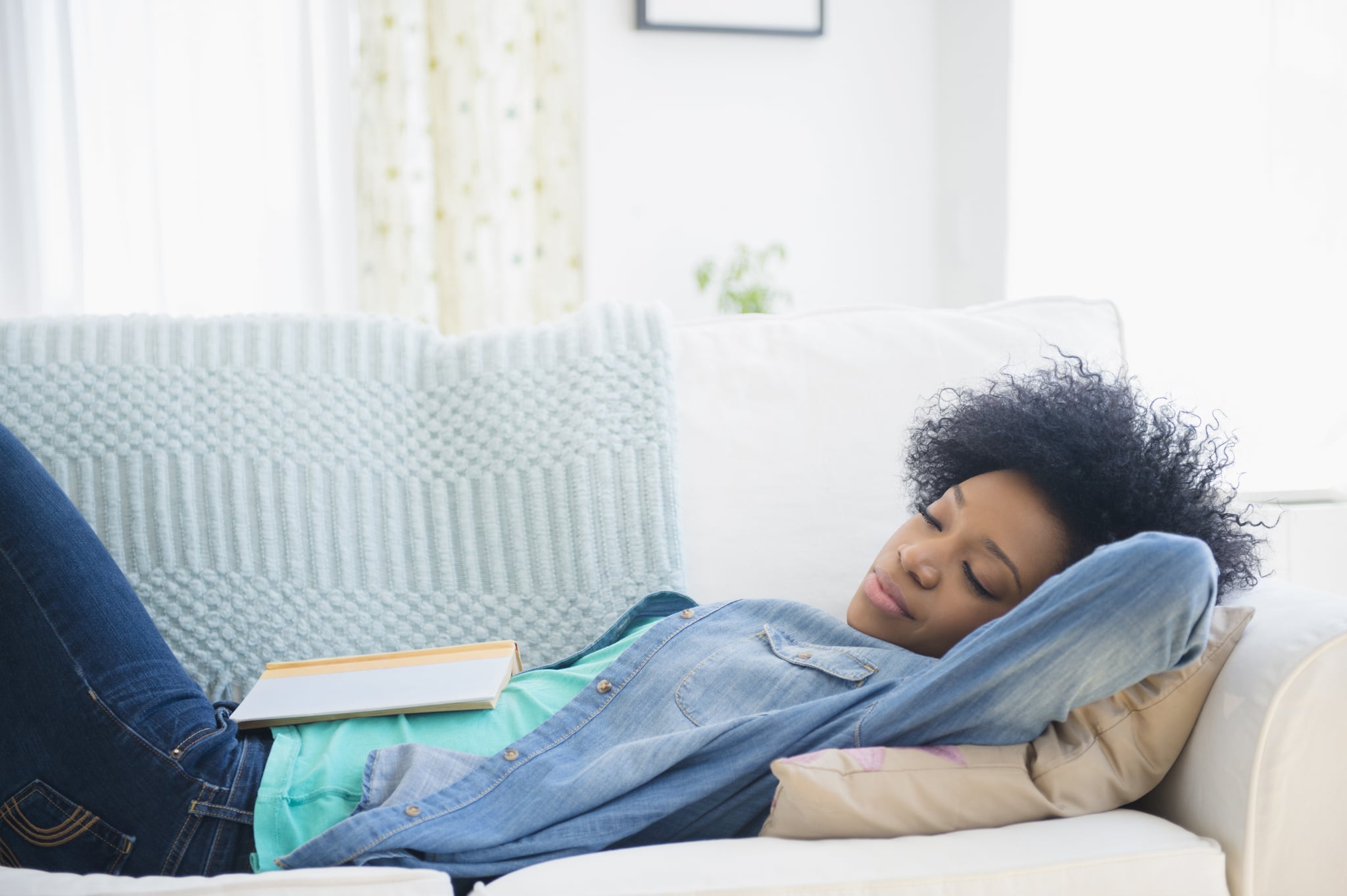
If the memes we're all posting are anything to go by, the first weeks of quarantine had us snapping at our loved ones, and feeling unmotivated, sluggish, stressed [1], and anxious. In a bid to remedy our dismay, we've become a nation of banana-bread-baking [2], video-dating, headstand-practicing overachievers. Sleeping seems to be the one thing we're not doing much of in a bid to feel as productive as possible. But it turns out, daily naps, far from being a sign of laziness, could be the answer to your quarantine woes.
Our Bodies Are Literally Telling Us to Nap
An effective nap has the ability to boost your mood and leave you more alert — plus our DNA is practically begging for one. "All humans, irrespective of culture or geographical location, have a genetically hardwired dip in alertness that occurs in the mid-afternoon hours," explained Dr Matthew Walker, a neuroscience professor at University of California, Berkeley [3]. During a typical work day, a Pret coffee run would get most of us through the rest of the afternoon. However, according to The National Sleep Foundation [4], a nap can bring about a more superior improvement in productivity.
Your ability to work better from home is not the only by-product of this Einstein-approved practise. If you're feeling like a cranky toddler, a daytime snooze will help alleviate your bad mood, ease tension, anxiety, and stress — which should leave you more upbeat — and get you feeling relaxed and far more patient with those you're quarantining with (whether that's your family or your flatmates [5]).
When It Comes to Midday Napping, Timing Is Everything
Napping always feels like a good idea until you wake up three hours later feeling groggy, followed by spending the early hours of the night staring at the ceiling counting sheep. That's why timing is everything. "If you nap for longer than 20 minutes you will begin to enter the REM stage [6], which is one of the deepest stages of sleep," explained Dr Nerina Ramlakhan, a physiologist and sleep therapist. "Interrupting this stage is what gives you sleep inertia, which is that groggy, sick feeling you get after a badly timed nap."
A successful nap occurs in the light stages of sleep and can feel like you're neither asleep nor awake. "You'll most likely still be aware of thoughts, noises, and sensations while being in a deep state of relaxation," added Ramlakhan.
But Stay Clear of Your Bedroom
How and when you nap is important, too. "That natural dip in energy occurs around 2 to 3pm, making this the best time to power nap. But try to avoid getting into bed, or at the very least under the covers. You don't want to feel too comfortable, as you're more likely to sleep longer if you do. This may have a negative impact on the quality of your nightly snooze," shared Ramlakhan. Dim the lights, ensure the temperature is cool, and avoid wearing anything too warm and cosy; and if your mind is racing, try some white noise or calming music to help you relax.